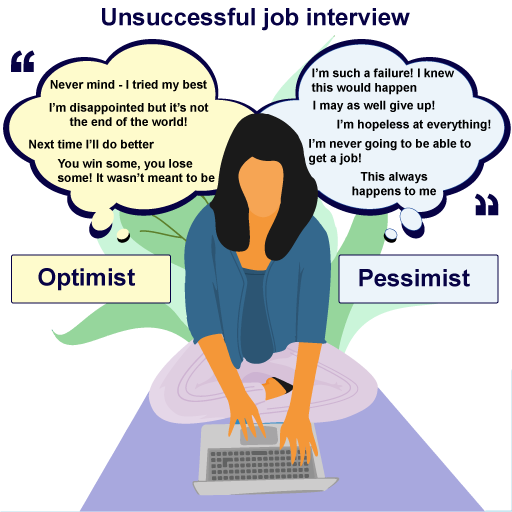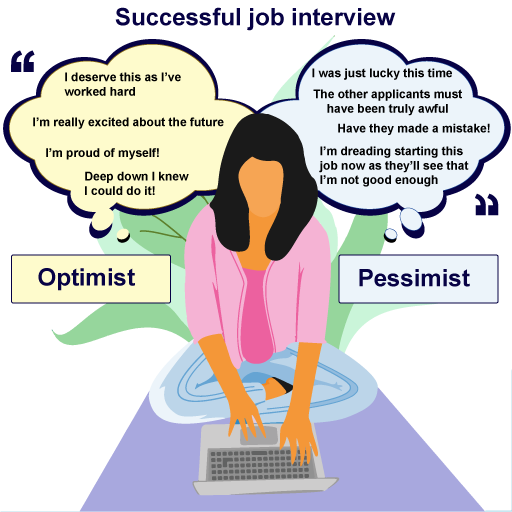6.2 Realistic hope and optimism
It is clear that there are benefits to cultivating hope and optimism.
However, it is important to consider that sometimes people can be overly optimistic in a way that is in contrast to the reality around them. This is often known as ‘blind optimism’ or having ‘false hope’ and could lead to people making unwise decisions.
Positive psychologists would encourage people to aim for realistic hope and optimism, appreciating any risks in a situation as well as actively looking for any positive opportunities to improve the potential outcome.
 How optimistic or hopeful are you?
How optimistic or hopeful are you?
Here is a short questionnaire that you can complete to help you to work out how optimistic/hopeful you are. There are no right or wrong answers, so try not to think too hard about your responses:
Follow the scoring information given at the bottom of the questionnaire to discover how optimistic/hopeful you are.
You can download this writable PDF version [Tip: hold Ctrl and click a link to open it in a new tab. (Hide tip)] of the questionnaire if you prefer to save it to your device and/or print it out.
If you find that you feel that you are less optimistic in life that is perfectly normal, and the world is full of optimists and pessimists. Often this will have been of benefit to you and perhaps helped you to cope, to be prepared, and to not feel surprised when things in life go wrong.
In the long term, however, you may feel that it would be of benefit to explore some exercises from positive psychology as research has found that hope and optimism are not static attributes and that you can learn ways to improve them.
 Are you optimistic or pessimistic?
Are you optimistic or pessimistic?
Where would you place yourself on this line? Use the interactive slider to locate where you think you are.
A downloadable PDF version of the interactive is available for accessibility or if the interactive doesn't play in your browser.
It can be helpful to recognise how naturally optimistic you are in order to consider how you have an effect on those around you. We call our thoughts around how optimistic we are, our explanatory style.
The graphics below gives us two examples of how the explanatory styles of an optimist or pessimist might react to a negative event, in this example the outcome of a job interview.
Look at the first diagram below, which demonstrates how the explanatory styles of an optimist and a pessimist react in a different way to an unsuccessful job interview
Now look below at how the explanatory styles of an optimist and pessimist react to a successful job interview.
6.1 What is hope and optimism and how can it help you and your family?



